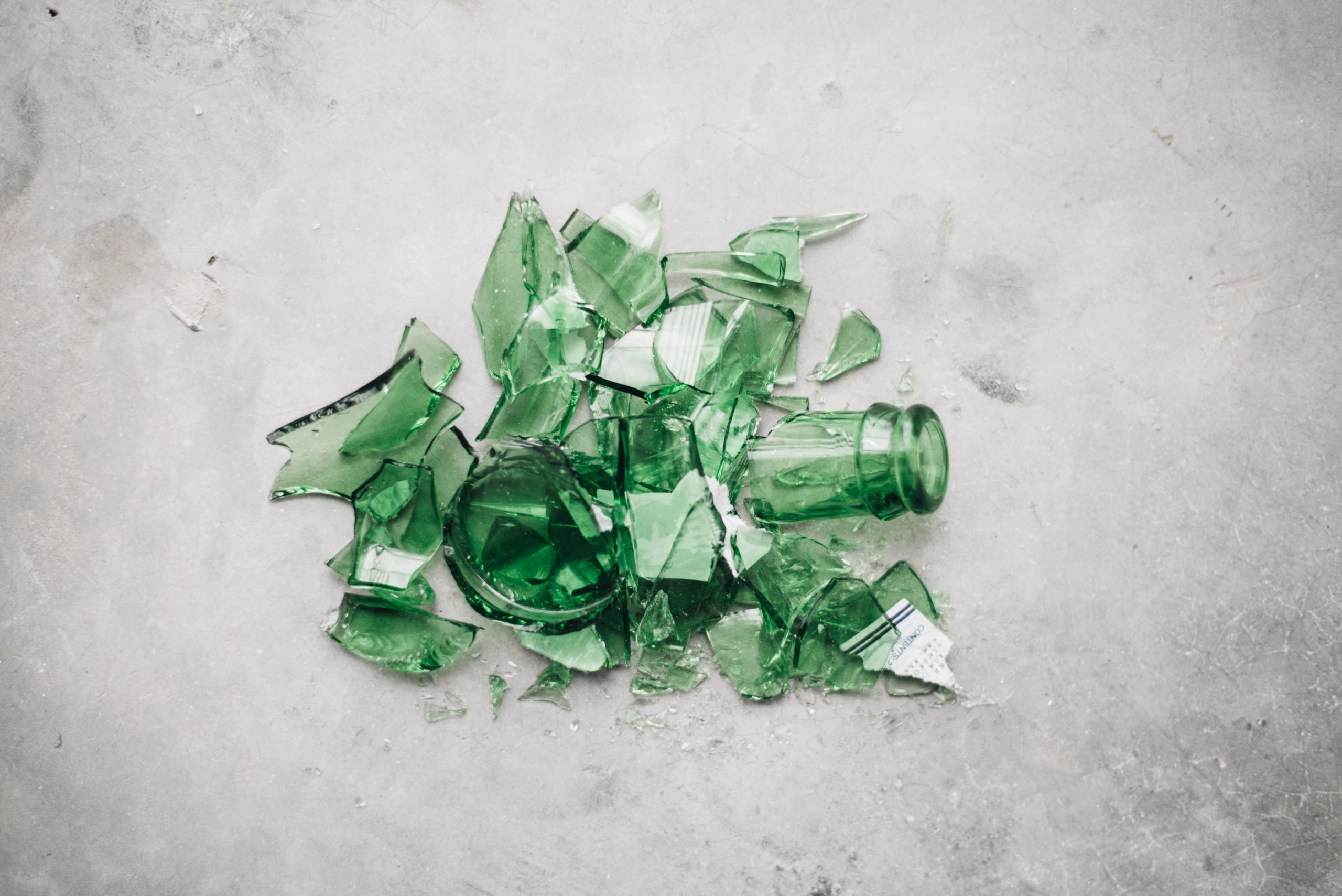RESOURCE HUB:
Alcohol related incidents

Related incidents
Overview
Spilling red wine over your friend’s pristine white sofa. Breaking another wine glass all over the floor. Tripping up your front steps.
Drinking can make us prone to minor accidents that almost seem part of your average night. But alcohol can be the cause of more serious accidents too.
There are two main things which make this likely. Because it’s a depressant, alcohol slows down the brain and affects the body’s responses. At the same time, if you’ve been drinking, you’re more likely to take risks. Combined, these reactions increase the chance of accidents happening.
The more you drink, the more likely you are to have an accident
“That table looks perfectly safe to dance on.”
“Forgot my keys. I’ll just hop over this fence!”
These are just two examples of the more light hearted side effects of drinking alcohol once euphoria sets in. But the feeling you get when the amount of alcohol in your blood increases can have disastrous consequences too. It can make you underestimate your own abilities and behave recklessly. That road doesn’t look as busy, that gap isn’t so big and besides, you are an expert long jumper…
As blood alcohol concentration (BAC) rises, so does the risk of accidents. BAC, the amount of alcohol in your breath or blood, is measured in mg of alcohol per 100ml of blood, or mg%. It’s affected by all sorts of factors, including how much alcohol you drink, how fast you drink it, your body size, how much you’ve eaten, your gender and even your emotional health.
Alcohol slows you down
Alcohol affects your body’s responses. It slows down your brain which means you are more likely to have an accident.
Drinking alcohol can:
- affect our judgement and reasoning
- slow down our reactions
- upset our sense of balance and coordination
- impair our vision and hearing
- make us lose concentration and feel drowsy.
More young men die from drink driving than any other group of people
Since 1979, when detailed reporting began, there has been an almost six-fold reduction in the number killed in drink-drive accidents and a similar drop in seriously injured casualties (1).
That’s the good news.
The bad news is that drink-drive accidents still account for 16% of all road deaths in Britain (2).
For drivers, alcohol can:
- reduce your ability to see distant objects – night vision can be reduced by 25% (3)
- make you have blurred and double vision
- reduce your ability to perceive what is happening around you
- make you lose your peripheral vision.
In the UK, the alcohol limit for drivers is 80mg of alcohol per 100ml of blood, 35µg per 100ml of breath or 107mg per 100ml of urine (4).
Alcohol increases the risk of accidents at home and work, and of fires
Stark statistics reveal the extent to which alcohol increases the risk of accidents of all kinds:
- Accidents at home. Alcohol is the single biggest cause of accidents at home. Of the 4,000 fatal accidents that happen in homes in the UK every year, 400 are alcohol-related (5).
- Accidents at work. Alcohol is a factor in up to one in four workplace accidents.
- Fires. In 2008, the London Fire Brigade estimated that almost a third of accidental fire deaths in the capital were alcohol related. (6).
The effects of alcohol can last longer than you think
Even after alcohol has left your bloodstream, you’re more likely to have an accident. In one study, 14 hours after drinking, two-thirds of a group of pilots could not perform routine tasks in a simulator, despite the fact that all the alcohol had left their system (7).
If you’ve had an accident when you’ve been drinking, other effects are:
- Your recovery from injury may be hindered. This is because alcohol affects your circulation and the immune system.
- It’s harder for doctors to diagnose serious conditions such as head injuries when a patient is drunk.
- Alcohol can interfere with anaesthetic and other medication, meaning operations and treatment may be delayed.
Three ways to avoid alcohol-related accidents
- Don’t drive, operate machinery, swim or take unnecessary risks.
- Look out for friends who may be behaving recklessly.
- Remember that your performance and judgement could still be affected by alcohol the day after a heavy drinking session.
Four top first aid tips to deal with alcohol-related accidents
- If you are at the scene of an accident, call the emergency services as soon as possible. Once you’ve called for help, if the person who needs it is unconscious, make sure their airway is open. If they are sick and their throat or tongue becomes blocked with vomit, they can choke and stop breathing.
- If the person is breathing, place them in the recovery position. If they aren’t breathing, perform chest compressions and breathe into their mouth.
- If someone is bleeding, apply pressure to the wound using a clean cloth or piece of clothing. If they’re in shock, lay them down, and raise and support the injured limb.
- If someone is burned or scalded, cool the affected area in cold running water for at least 10 minutes, then cover the wound with a clean, non-fluffy cloth to prevent infection.
Alcohol related accidents facts
- Accident victims who have been drinking suffer more serious injuries than those who haven’t (8).
- Younger people are more likely to have an alcohol-related accident than older people (9).
- 280 people were killed in drink drive accidents in 2012, an increase of around 17 per cent compared with 2011 and accounting for 16 per cent of all road deaths in Great Britain (10).
Staying in control
Drinking within the lower risk guidelines will help you keep your drinking under control. Here are three ways you can cut back:
Give alcohol-free days a go.
If you drink regularly, your body starts to build up a tolerance to alcohol. This is one of the main reasons why many medical experts recommend taking regular days off from drinking to ensure you don’t become addicted to alcohol. Test out having a break for yourself and see what positive results you notice.
Stress less.
Some people drink alcohol to relax, but in reality, alcohol can make you feel even more stressed out. Try not to make alcohol key to your after-work wind down, and consider some alternative stress-busters like hitting the gym or having a hot bath.
Know what you’re buying.
Check out the ABV on a bottle of wine before you buy it. ABV stands for Alcohol by Volume, which is the percentage of the drink that is pure alcohol. It’s not uncommon for a bottle of wine to be verging on 15% ABV, which could easily push you over the government’s lower risk guidelinesif you drink more than one glass. Producers are increasingly introducing 10% or lower ABV wines that are as palatable as their stronger counterparts. Look out for them when you’re next buying a bottle.

